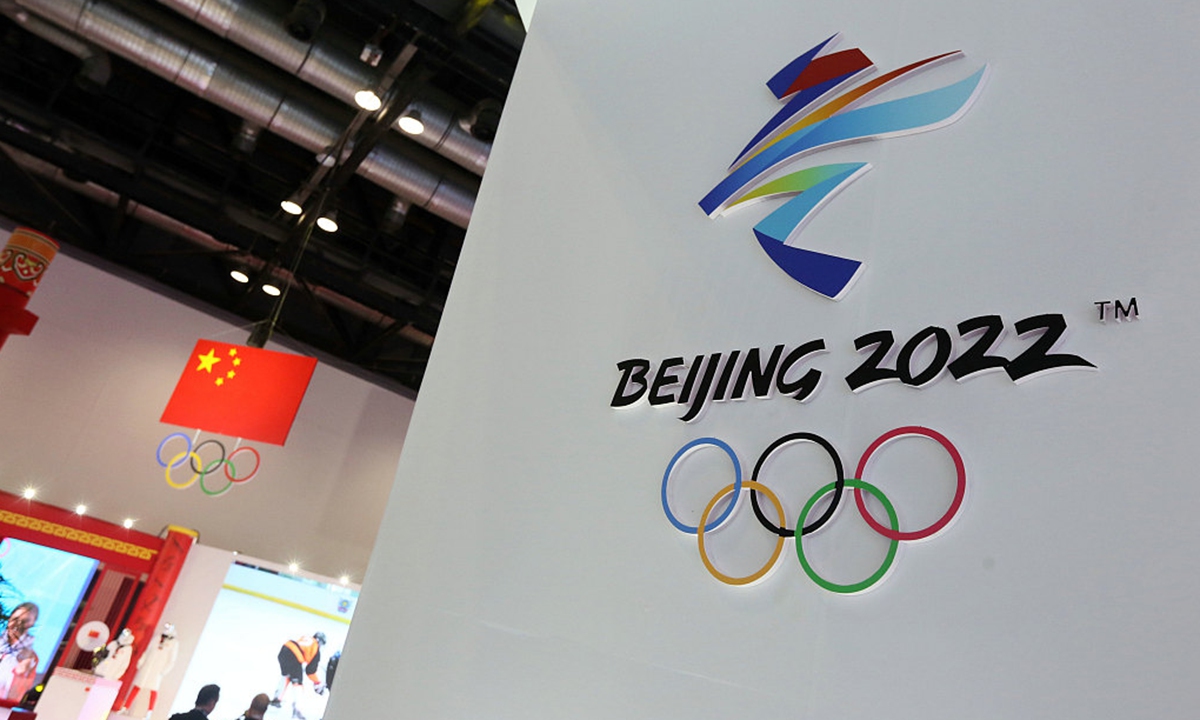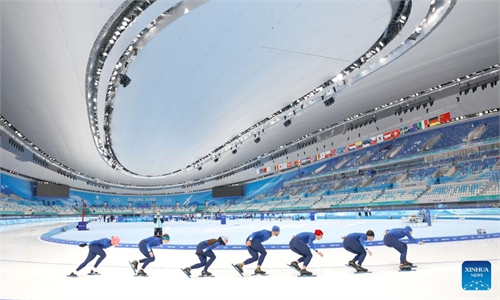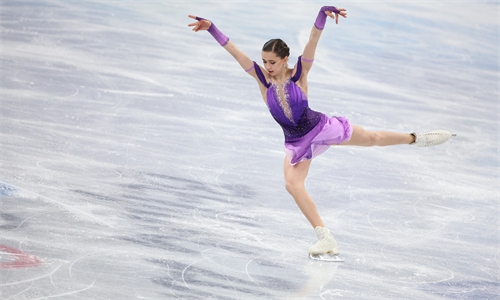
Beijing 2022 Winter Olympics Photo:VCG
The controversy over Russian skater Kamila Valieva is drawing public attention to the topic of the anti-doping campaign during the Beijing 2022 Winter Olympic Games. Chinese officials and volunteers have been dedicated to taking "watertight" measures for four years to ensure not only clean Chinese competitors but clean competitions at the Games.
In an exclusive interview with the Global Times on Thursday, Ling Lin, head of the doping control department of the Beijing 2022 organizing committee, disclosed the procedures for establishing the anti-doping team and the strict requirements for hiring anti-doping officers and volunteers.
"We have a large team, including managers, doping control officers and volunteers stationed at various venues at the Olympic Villages to ensure the smooth running of doping testing at the Beijing Winter Olympics," Ling said.
Referring to Russian figure skater Valieva's positive result, she said the athlete's positive sample was collected before the Beijing Olympic Games, so the management and ruling does not depend on the Beijing organizing committee. "What we can guarantee is that all our doping testing is transparent," Ling said.
According to Ling, each sample they collect does not have the athlete's personal information, only a number. Inspectors only see the numbers of the samples that test positive in the lab, and that positive result is issued by the corresponding agency.
Doping detection is a very rigorous work and any loopholes will have a great impact on the results of the competition and athletes as well, therefore it is particularly important for officers to strictly abide by professional standards and procedures, she said.
It means all the officers and volunteers must undergo a series of selection processes and rigorous training before being dispatched to their positions at the Games.
The Global Times learned that many doping control officers have medical backgrounds, as many of them are clinical doctors and nurses selected from hospitals in Beijing. As nursing professionals, they are familiar with sample collection, including urine and blood, which is the most important part of doping sample collection.
Some specialize in sports-related disciplines, such as kinesiology, and they have rich experience of doping testing during their participation in many major domestic and international sports events, including the 2008 Beijing Olympics.
Zhang Guosheng, who is a head nurse at a hospital in Beijing, used the word "brutal" to describe the selection of doping control officers.
Such prolonged and strict selection and training meant that many candidates failed to make it to the Winter Olympics, Zhang said. "We understand that such strict requirements are necessary for important competitions like the Olympic Games, and it's also responsible for all athletes."
According to several volunteers reached by the Global Times on Thursday, at the Olympic village, doping testing goes through three main steps: first, the notification of the athlete; second, the sample collection; and finally, the transfer of samples.
The doping control officers collect all the samples, whether urine or blood, in a special transfer box, and then move them to the laboratory through the anti-doping department using special logistics arrangements.
Chen Zhiyu, director of the China Anti-Doping Agency, was quoted as saying in media reports on Thursday that Chinese Olympians were tested up to the opening of the Athletes' Village under a thorough and stringent anti-doping program for the Games.
The program that spanned four years saw over 7,000 doping tests conducted on all Chinese Winter Olympic training team athletes until the Athletes' Village officially opened, according to Chen.
"The four-year Winter Olympic anti-doping program is the longest in China's history and also the most thorough and stringent," he said. "Our aim is to send a clean team to the Beijing Winter Games."
Chen previously told the media that China had joined the development of an innovative testing method to detect banned substances in dried blood and the technology had been used for the first time at the Beijing Winter Olympic Games.
The method requires little blood and it is easy to collect, store and transfer the samples, according to Chen.
China has held a "zero-tolerance" stance on doping for years and kept adding effective new measures to its anti-doping toolbox.
In preparation for the Tokyo Summer Games, the China Anti-Doping Agency conducted doping tests right before the athletes boarded their flights to Tokyo, leaving as little room for cheating as possible.
"We summed up the experience from the Tokyo Games and also made plans to cover athletes' entire preparations for Beijing 2022," Chen said.
In 2021 alone, China conducted a record-high 26,000 doping tests while recording a record-low 0.08 percent positive rate, according to the Xinhua News Agency.



